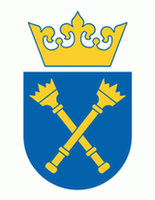It would be some time before I fully realized that the United States sees little need for diplomacy; power is enough. Only the weak rely on diplomacy. This is why the weak are so deeply concerned with the democratic principle of the sovereign equality of states, as a means of providing some small measure of equality for that which is not equal in fact. Coming from a developing country, I was trained extensively in international law and diplomacy and mistakenly assumed that the great powers, especially the United States, also trained their representatives in diplomacy and accepted the value of it. But the Roman Empire had no need for diplomacy. Nor does the United States. Diplomacy is perceived by an imperial power as a waste of time and prestige and a sign of weakness.
Boutros Boutros-Ghali, as quoted in Unvanquished : A U.S. - U.N. Saga (1999), p. 198.

